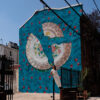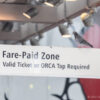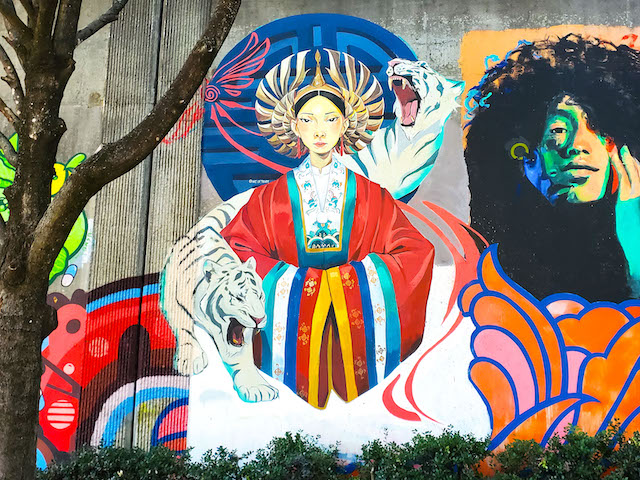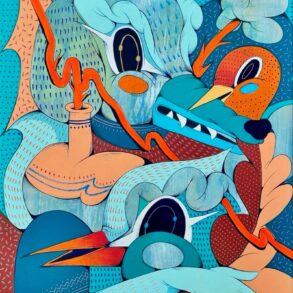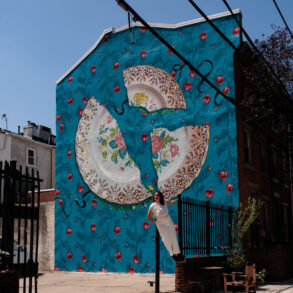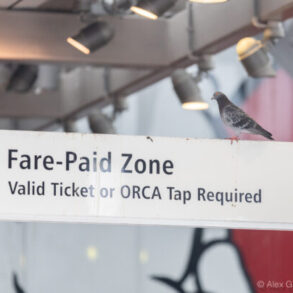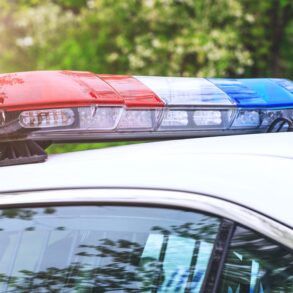According to local folklore, Cabbagetown got its name when a Model T truck loaded with cabbages overturned. The residents helped themselves to the newly liberated vegetables, and the smell of cabbages cooking permeated the community for weeks.
Following the Civil War, German Jewish immigrant Jacob Elsas opened the Fulton Bag and Cotton Mills. Houses built for the mill’s workers have today become private homes, but, before the district became gentrified, Cabbagetown was a thriving home to artists and musicians.
Today, Cabbagetown is one of Atlanta’s best street art viewing districts. A mural-filled walking tour of the district starts at the corner of Wylie Street and Pearl Street at the east end of a half-mile-long wall owned by the CSX Railroad.
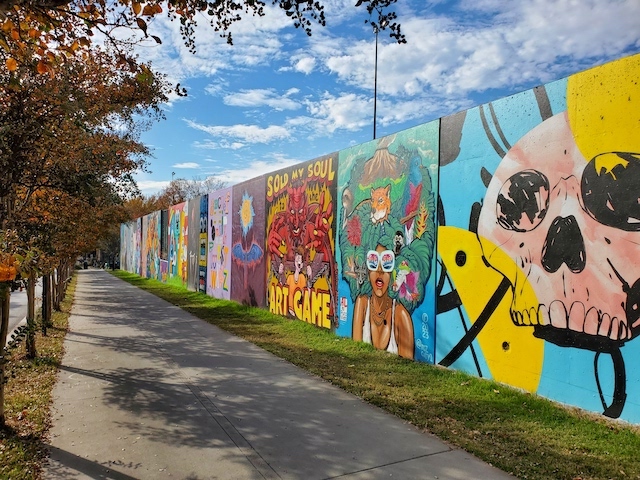
In 2010, when graffiti tagging on the CSX wall spread to cars and a nearby church, the neighborhood invited Living Walls to Cabbagetown to paint murals on the wall, hoping taggers would respect the art. In 2012, Forward Warrior was born. This informal annual painting party, hosted by Atlanta artist Peter Ferrari for his friends, utilized plywood panels in makeshift locations near the Atlanta BeltLine.
In 2014, the annual Forward Warrior mural painting event was given a permanent home on the wall. (Disclosure: The author’s website, Atlanta Street Art Map, is a sponsor of Forward Warrior and a mural in the Tye Street Mural Park.)
“Cabbagetown has a reputation for being a welcoming place for artists and musicians,” says John Dirga, a long-time resident and Neighborhood Planning Unit representative. “Forward Warrior was a perfect opportunity to continue in that spirit and to give back to the city.”
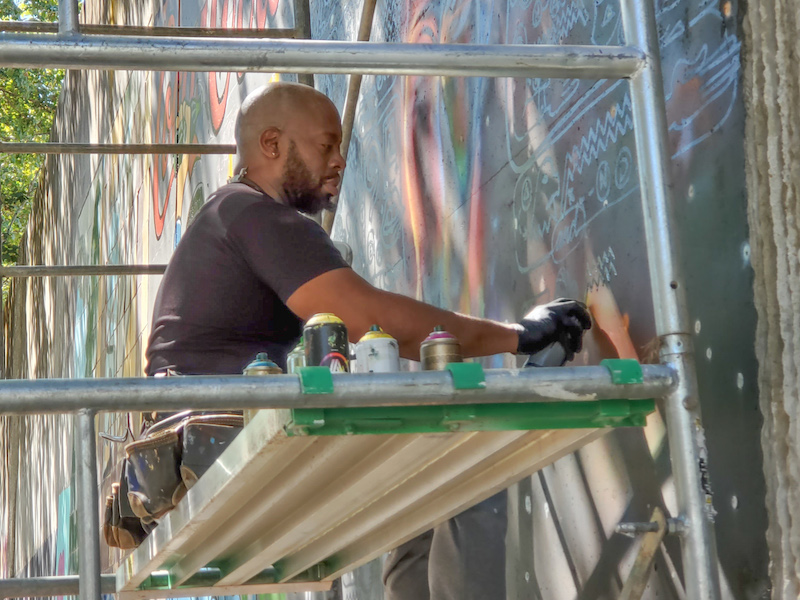
Ferrari’s curation of Forward Warrior includes both established and upcoming muralists. An example of the former is Fabian Williams, whose mural features Martin Luther King Jr. as an apparition-like superhero floating above sleeping children: Think “I have a dream.” In 2023, Williams updated the mural to include a portrait of Fulton County District Attorney Fani Willis. A Black woman holding the powerful accountable is part of the realization of Dr. King’s dream.
One of the emerging muralists is Trudy Tran, who painted her first mural at Forward Warrior in 2022. Tran’s mural depicts a woman wearing a traditional Vietnamese dress (ao nhật bình) and a re-imagined wedding turban (khan dong).
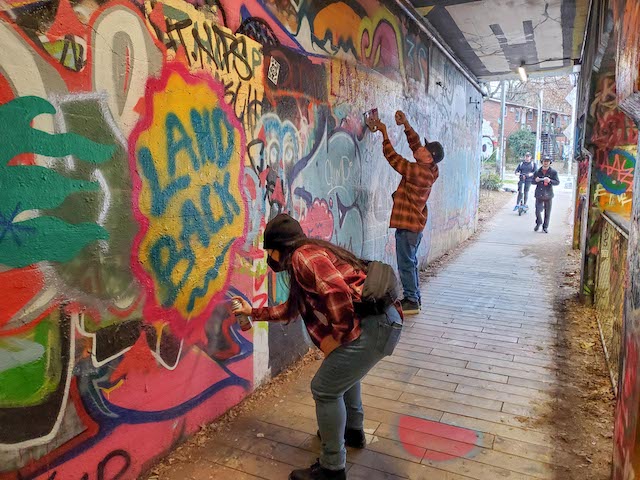
Walking west on Wylie Street, the Krog Street tunnel appears. The passageway, also owned by CSX, was once a popular haunt for Atlanta’s clandestine graffiti practitioners, and, in 2002, the city de-criminalized painting in the underpass. After the tunnel became part of the Atlanta BeltLine in 2017, many of the writers moved on to other locations, but it is still a great place for graffiti newbies and tourists to try their hand at the art. Nothing there lasts long — the walls are repainted almost daily.
Across the street from the tunnel is the hood’s favorite watering hole: 97 Estoria. The walls of the building and the fence surrounding the outdoor patio are covered with artwork.
“So many talented people hang out at Estoria and have become close friends of ours,” says General Manager Katherine Arrington. “They sit at the bar and draw or show us photos of what they’ve been working on while away. They come here for a quick drink before heading to art galleries in support of each other.”
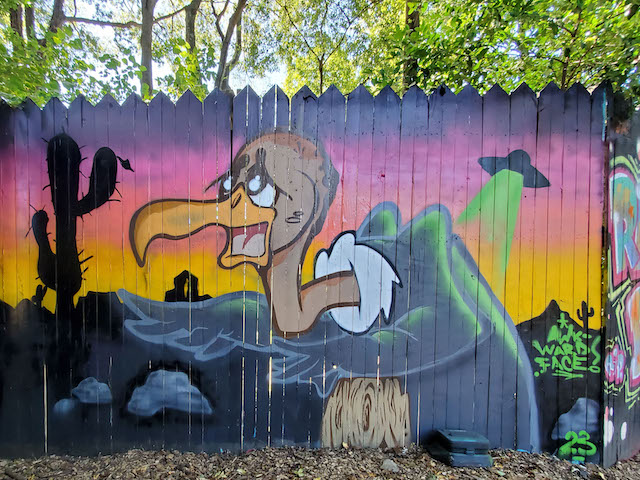
An example of this community-supported creativity is a fanciful mural spontaneously designed by BigTeeff and Jesse Jaeger. It features space aliens harassing an armadillo and a vulture in the middle of the desert.
At the west end of the CSX wall, the original Fulton Bag and Cotton Mills building is now The Stacks condos, named after the mill’s smokestack, which still stands. Austin Blue was the original curator of the Stacks Squares Mural project, which began in 2017. “We wanted an application-based event that could get people in the door of public art, and the wall size was perfect for first-time muralists,” he says.
The wall is repainted by different artists three times per year. Kristen Consuegra, a White-Latinx, queer non-binary artist and first-time muralist, is part of the most recent round. Consuegra’s mural features a “portrait of myself in blossom,” she says.
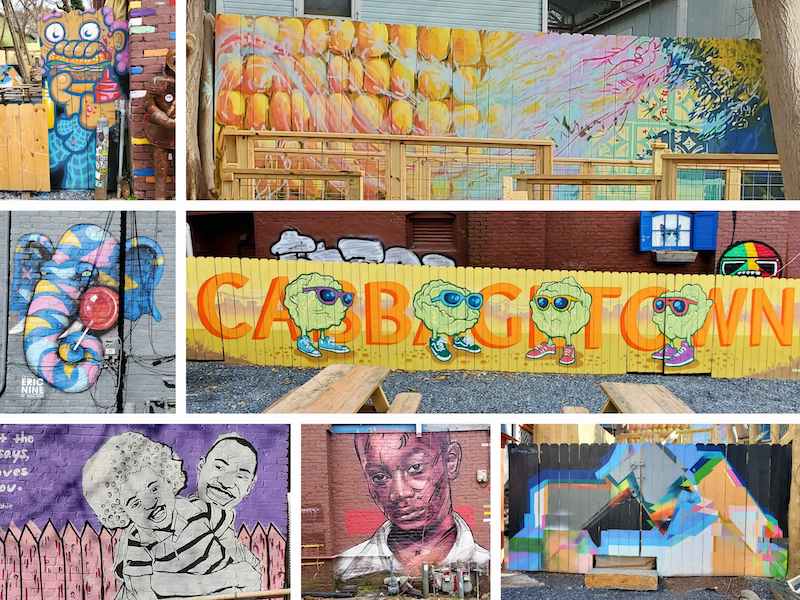
A block south on Carroll Street, visitors pass a small mural park next to Little’s Food Store, where the outdoor eating space became an art space during the pandemic. Owners Brad and Nina Cunard consider everything at the store to be their “living art project.” The space features art such as Sean Fahey’s piece on love, Chris Wright’s mural spelling out CABBAGETOWN and Rev. Dave DeChant’s stone snail image: “We love that it is a constant evolution through change both organic and planned. Art in the city brings life, and we are all about celebrating that beauty.”
Turning left onto Memorial Drive, mural explorers will pass a large-scale work by Spanish artist Sabek, which features a girl and a dog, and a colorful abstract by Yoyo Ferro from the New School. The walking tour concludes at the Tye Street Mural Park. The park was founded by Donna Howells (aka 70dot), an artist who became a muralist at age 70, and David Lewis, co-owner of Wylie & Rum.
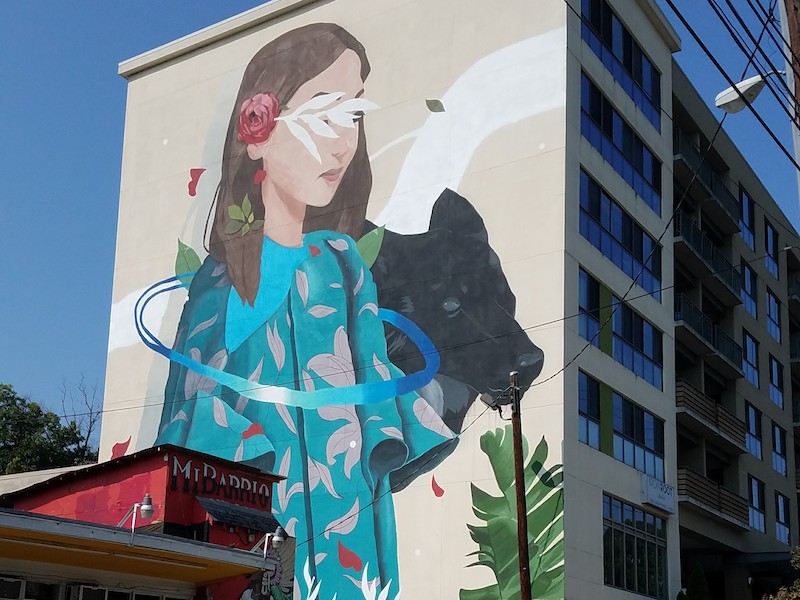
Lewis cleared the overgrown lot, obtained permission to paint from multiple out-of-state owners and helped Howells recruit artists. She led a team of female artists to paint a mural titled Grit and personally painted a mural titled How Cabbagetown Got its Name. In Howells’ words: “It was gratifying to improve that entrance into Cabbagetown, a neighborhood we both love.”
::
Arthur Rudick created the Atlanta Street Art Map in 2017 after retiring from a successful career as an engineer with Eastman Kodak and the Coca-Cola Company. His first experience of art was seeing an Alexander Calder mobile as a child in the Pittsburgh airport. Rudick is ArtsATL’s street art expert and a regular contributor.
This post was originally published on this site be sure to check out more of their content.


